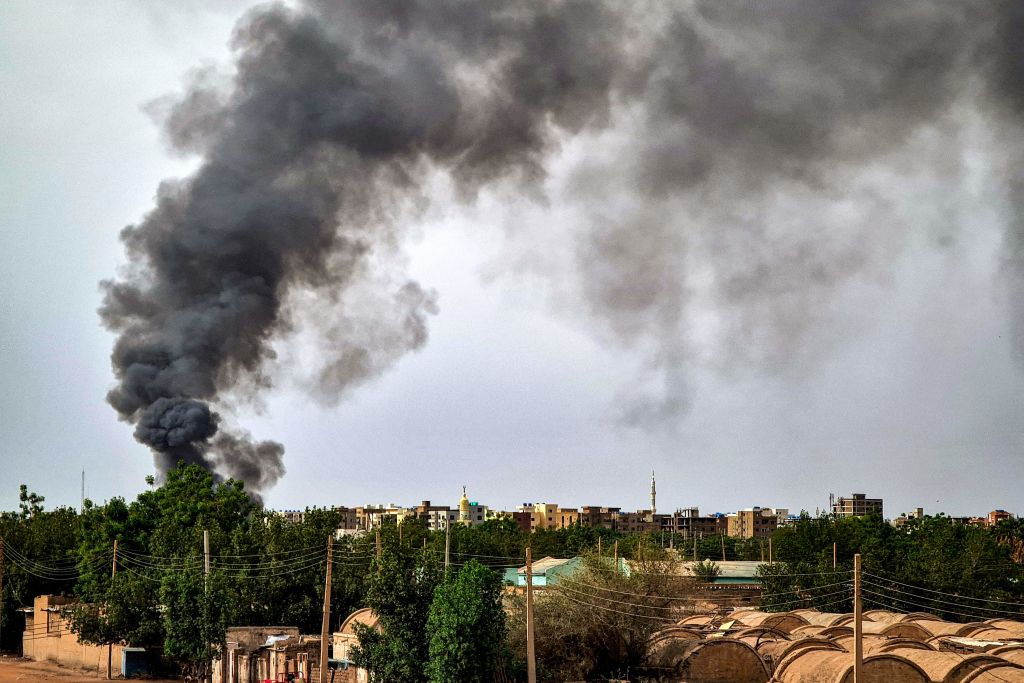ADF STAFF
About a week after fighting broke out in mid-April in Sudan, jailed members of the regime of former dictator Omar al-Bashir walked out of prison. They had been detained in Khartoum’s Kober prison since 2019 and, for some, their release signaled an alarming new dimension to the conflict.
Observers are concerned that Islamist elements of the former regime, including the prisoners, provoked the fighting and remain behind the violence in the capital and Darfur region, Amgad Farid, former executive assistant of Prime Minister Abdalla Hamdok and pro-democracy activist, told OrientXXI.
“They have always been active; they have always sought to sabotage the democratic transition,” Farid told the publication.
For members of the Forces of Freedom and Change (FFC), the public appearance of former regime members outside prison proves “the deposed regime and its dissolved party are — through their assets in the armed forces — behind the ongoing war,” according to a report by Agence France-Presse.
The men at the heart of Sudan’s violence, Sudan Armed Forces (SAF) leader Gen. Abdel Fattah al-Burhan and the Rapid Support Forces (RSF) leader known as Hemedti, have accused each other of recruiting Islamists; both have denied doing so.
In November 2022, al-Burhan publicly stated that Islamists would not return to power and warned them to avoid meddling with the political neutrality of the army.
“The army will not allow any group to return to power through it, neither the National Congress nor the Islamic Movement,” al-Burhan said the time. “We say to the National Congress that 30 years of power is enough for you.”
Al-Burhan’s statement was undercut by the death of an Islamist fighter named Mohammed al-Fadl, who died in Khartoum while fighting alongside the SAF against the RSF militia.
Sudan’s Islamists argue that Islam should shape the country’s political and legal systems. Since the outbreak of violence between the SAF and RSF, al-Burhan has reactivated many of Sudan’s pre-2019 Islamist systems, including intelligence and the People’s Defense Force.
Critics say an Islamist-SAF alliance will make it more difficult to end the chaos engulfing the country and could upend any effort to move Sudan toward democracy after the fighting between the SAF and RSF ends.
Islamist forces within the SAF could at some point begin to operate on their own.
Islamists brought al-Bashir to power in 1989 and were crucial to his ability to remain in power. Al-Bashir recruited the Janjaweed, an Arab militia group, to suppress rebels in Darfur 20 years ago and later elevated those fighters to become the RSF as a counterweight to the armed forces. Both the SAF and Islamists opposed the decision because it created an independently financed armed force within Sudan.
Under al-Bashir, the SAF had many Islamist officers. Following the 2019 coup that deposed al-Bashir, Islamists supported military rule with a technocratic bureaucracy running the country’s day-to-day operations.
Former members of al-Bashir’s now-banned National Congress Party (NCP) have said publicly that they have no ties to the fighting and only backed the army politically.
However, according to Reuters, about 6,000 members of the country’s disbanded National Intelligence and Security Service (NISS) — an agency populated largely by Islamists from the al-Bashir era — sided with the SAF before fighting broke out on April 15.
“We are fighting and supporting the army to protect our country from external intervention and keep our identity and our religion,” said one unnamed Islamist fighting alongside the army told Reuters.
Hemedti has continued to accuse the SAF of working with Islamists to maintain control of the country and undermine its transition to civilian rule.
After the joint SAF-RSF coup that deposed al-Bashir in 2019, al-Burhan banned the NCP and had many of its members arrested. However, two years later, following the 2021 coup that disrupted Sudan’s transition to civilian rule, al-Burhan brought many of the former NCP members back into the government to keep it operating.
He also disbanded the commission that had been created to dismantle the financial networks created by allies of al-Bashir.
As Sudan’s de facto leader, al-Burhan has garnered support from Egypt, Saudi Arabia, and the United Arab Emirates. All three countries’ governments are anti-Islamist, so an overt connection to Islamists could cost al-Burhan their support.
“The resurgence of Islamists in Sudan’s military poses a significant challenge for regional powers and threatens to undermine efforts towards a democratic transition,” analyst Kasturi Chakraborty recently wrote for BNN Breaking news agency.

